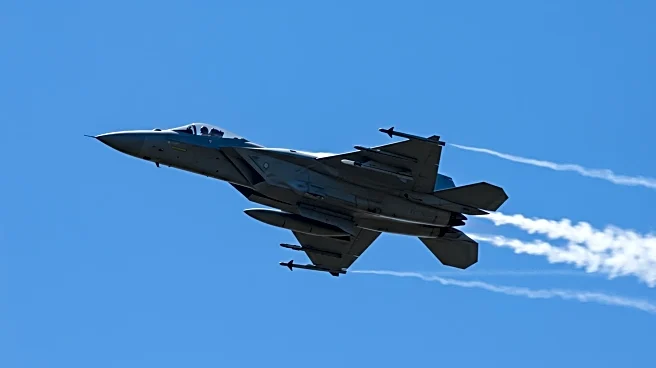What's Happening?
South Korea is accelerating the development of ground-attack capabilities for the KF-21 fighter, following the retirement of the F-4 Phantom. The Defence Acquisition Program Administration (DAPA) has revised the Basic System Development Plan, advancing air-to-ground weapons testing to 2027. This decision aims to strengthen military air power and enhance the competitiveness of the aviation industry. The KF-21, with 10 hardpoints and a maximum payload of 7,700kg, is in flight testing, with production contracts for 40 units for the Republic of Korea Air Force.
Why It's Important?
The fast-tracking of the KF-21's ground-attack capabilities is crucial for South Korea's defense strategy, as it seeks to modernize its military assets. This development enhances the country's air power and positions its aviation industry for potential defense exports. The move reflects South Korea's commitment to maintaining a robust defense posture amid regional security challenges. The KF-21's capabilities could influence geopolitical dynamics and defense collaborations in the Asia-Pacific region.
What's Next?
The KF-21's development will continue, with air-to-ground weapons testing scheduled for 2027. The Republic of Korea Air Force is expected to receive its first aircraft in late 2026. The ongoing modernization efforts may lead to further advancements in military technology and defense partnerships. South Korea's defense strategy will likely evolve to address emerging threats and maintain regional stability.
Beyond the Headlines
The acceleration of the KF-21 program highlights the importance of technological innovation in defense. The integration of advanced capabilities may drive long-term shifts in military strategy and defense industry competitiveness. Ethical considerations regarding the use of military technology and its impact on regional security may also arise.











